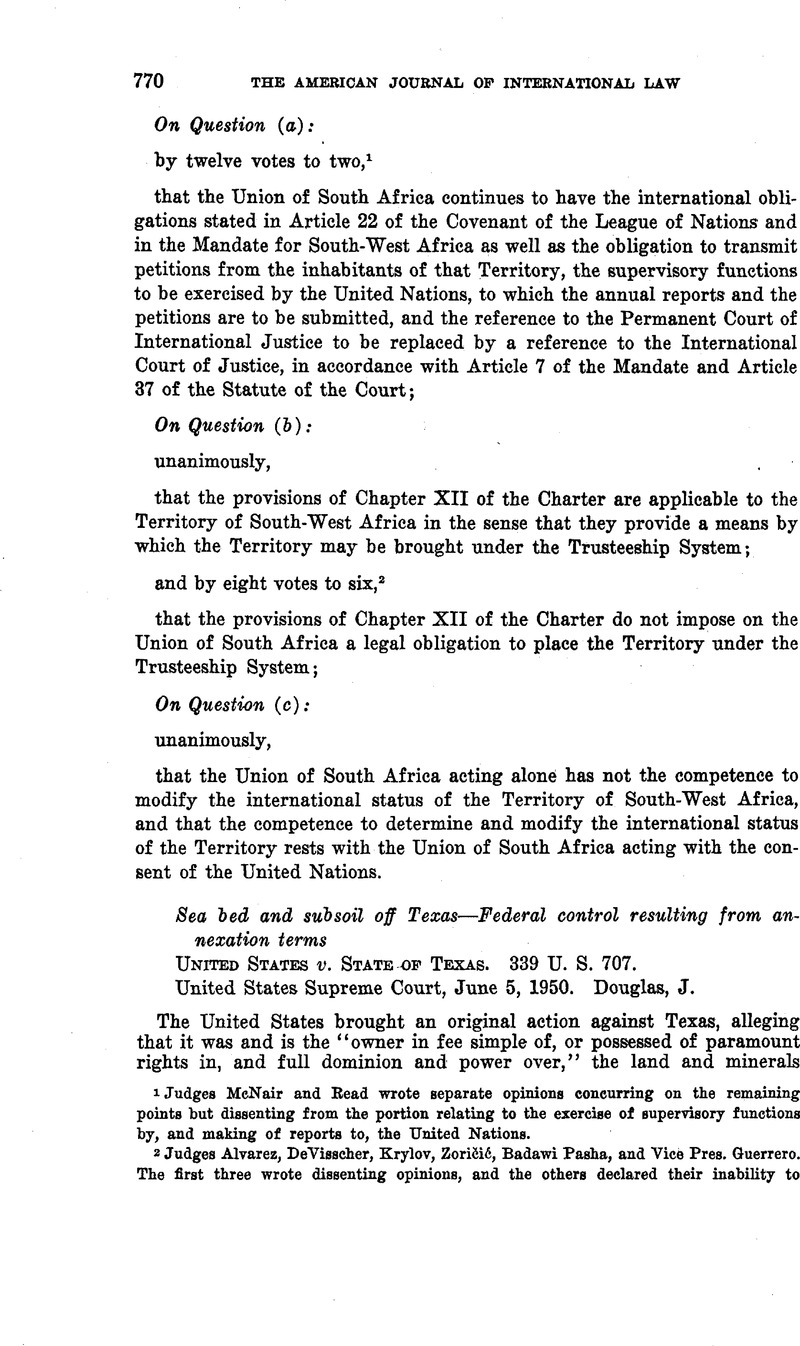Published online by Cambridge University Press: 20 April 2017

1 Reed, Minton and Frankfurter, JJ., dissenting, and Clark and Jackson, JJ., taking no part in the decision.
2 Amended Oct. 16, 1950, to read: “on an equal footing with the original States in all respects whatever.”
3 By amendment on Oct. 16, 1950, the word “admitting” was substituted for “annexing.”
4 Petition for rehearing, filed July 19, 1950 (No. 13, Original), was denied on Oct. 16, 1950. In the companion case of United States v. State of Louisiana, 339 TJ. S. 699, involving no historical claim such as that of Texas, the Court followed United States v. California, 332 U. S. 19 (1947) in holding that the Federal Government rather than the State had paramount rights over the sea-bed and subsoil, the only difference from the California case being that Louisiana had asserted rights 24 miles seaward of the three-mile belt. Douglas, J., said that: “We intimate no opinion on the power of a State to extend, define, or establish its external territorial limits or on the consequences of any such extension vis à vis persons other than the United States or those acting on behalf of or pursuant to its authority. . . . If, as we held in California's case, the three-mile belt is in the domain of the nation rather than that of the separate States, it follows a fortiori that the ocean beyond that limit also is. The ocean seaward of the marginal belt is perhaps even more directly related to the national defense, the conduct of foreign affairs, and world commerce than is the marginal sea.” Petition for rehearing in this case (No. 12, Original) also was denied on Oct. 16, 1950.